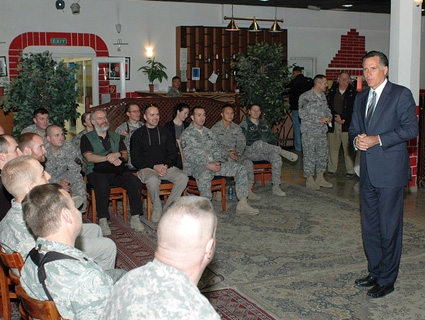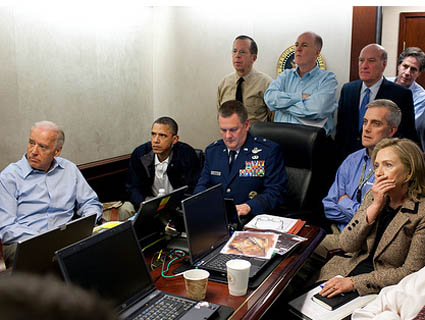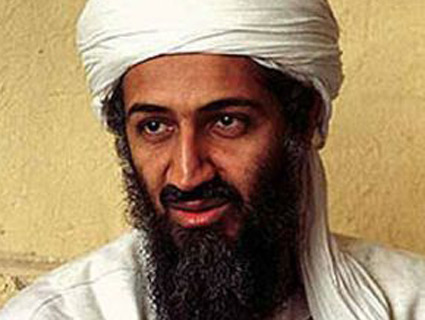
Director Kathryn Bigelow and writer Mark Boal want their cinematic portrayal of the hunt for Osama bin Laden, Zero Dark Thirty, to be seen as more than just a movie. “What we were attempting is almost a journalistic approach to film,” Bigelow told The New Yorker‘s Dexter Filkins. The film is a “hybrid of the filmic and the journalistic,” writer Mark Boal told New York. Speaking to Matt Lauer on NBC’s Today, Bigelow said, “I think the film doesn’t have an agenda. I think it just shows the story as, you know, the story of the greatest manhunt in history. And that’s part of that history.” But the film, according to those who have seen it, shows torture as central to the discovery of bin Laden’s location, and this departs from what is publicly known about the raid on Abbottabad. So is Bigelow rehabilitating torture?
According to the New York Daily News, the film, which opens next month, “includes graphic torture scenes, including depictions of waterboarding and sexual humiliation, used to obtain information from detainees which ultimately help pinpoint bin Laden’s compound in Abbottabad, Pakistan.” Bigelow is no fan of torture, but she says she had to stick with the facts: “I wish that it wasn’t a part of history, but it is and was.” Not accurate history.
Filkins’ fawning piece on Bigelow—he writes that “she feels a little like what she imagines the men and women who chased bin Laden must feel: elated”—points out that the Senate intelligence committee chair Dianne Feinstein (D-Calif.) explained that the original information that led to bin Laden didn’t come from a CIA detainee. Feinstein’s letter was unequivocal: “The suggestion that the operation was carried out based on information gained through the harsh treatment of CIA detainees is not only inaccurate, it trivializes the work of individuals across multiple U.S. agencies that led to UBL and the eventual operation.” Nor was Feinstein the only one to say so; a letter from the then-CIA director Leon Panetta sent to Sen. John McCain (R-Ariz.) echoed the same findings.
Defenders of Bush-era enhanced interrogation waged a fierce public relations campaign to rehabilitate torture in the aftermath of the bin Laden killing, in part to award Bush credit for the raid. But the facts kept getting in the way. Jose Rodriguez, the former CIA official responsible for the destruction of videos recording the (ineffectual) torture of detainee Abu Zubayda, went on 60 Minutes and was unable to rebut the fact that alleged 9/11 mastermind Khalid Sheik Mohammed lied when questioned about bin Laden’s courier, despite being tortured. The CIA inspector general found that “you could not in good conscience reach a definitive conclusion about whether any specific technique was especially effective, or [whether] the enhanced techniques in the aggregate really worked.” Republicans are currently attempting to block a Senate intelligence committee investigation of the efficacy of so-called “enhanced interrogation techniques.”
Someone attempting to make a “journalistic” feature film on the hunt for Osama bin Laden could be expected to be aware of all this. When Filkins asked Boal about the portrayal of torture departing from the known facts, he replied, “It’s a movie, not a documentary.” Bigelow and Boal want their film to be seen as a contribution to the historical record, not as mere entertainment. So far they are winning over influential film critics. If you’re thinking of giving them an award, Zero Dark Thirty is “history”; if you’re a journalist asking a question about a factual error in the film, it’s just a movie.
The critical acclaim Zero Dark Thirty is already receiving suggests that it may do what Karl Rove could not have done with all the money in the world: embed in the popular imagination the efficacy, even the necessity, of torture, despite available evidence to the contrary. Whatever the artistic merits of the film, that will be its moral legacy. That’s quite an accomplishment, but not a journalistic one.
Correction: This post initially stated Bigelow said the film was “not a documentary,” it was Boal.















